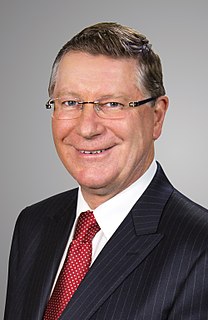A Quote by Nikola Tesla
The recurrence of a phenomenon like Edison is not very likely. The profound change of conditions and the ever increasing necessity of theoretical training would seem to make it impossible. He will occupy a unique and exalted position in the history of his native land, which might well be proud of his great genius and undying achievements in the interest of humanity.
Quote Topics
Achievements
Be Proud
Change
Conditions
Ever
Exalted
Genius
Great
His
History
Humanity
Impossible
Increasing
Interest
Land
Like
Likely
Make
Might
Native
Native Land
Necessity
Occupy
Phenomenon
Position
Profound
Proud
Recurrence
Seem
The History Of
Theoretical
Training
Unique
Very
Well
Which
Will
Would
Related Quotes
No civilisation, not even that of ancient Greece, has ever undergone such a continuous and profound process of change as Western Europe has done during the last 900 years. It is impossible to explain this fact in purely economic terms by a materialistic interpretation of history. The principle of change has been a spiritual one and the progress of Western civilisation is intimately related to the dynamic ethos of Western Christianity, which has gradually made Western man conscious of his moral responsibility and his duty to change the world.
The great genius does not let his work be determined by the concrete finite conditions that surround him, whilst it is from these that the work of the statesman takes its direction and its termination. ... It is the genius in reality and not the other who is the creator of history, for it is only the genius who is outside and unconditioned by history.
When Edison first started out with his "crazy" idea for the light bulb, skeptics were unmoved. They called Thomas Edison a con man and taunted him to prove his bulb could really work. Despite the naysayers, Edison pushed on, demonstrating the importance of sticking with his "crazy" idea which would go on to turn him into one of the world's most well-known entrepreneurs. The key here is to fan the foolish fire no matter what!
Disregarding all evidence to the contrary, the student of Truth will maintain that he lives in a PERFECT Universe and among people potentially perfect. He will regulate his thinking to meet this necessity and refuse to believe in its opposite. At first he may be influenced by conditions, and he may appear weak, but as time goes on he will PROVE TO HIMSELF that his position is a correct one, for that which appears imperfect will begin to slip from his experience
As a writer, politician, scientist, and businessman, [Ben] Franklin had few equals among the educated of his day-though he left school at ten. (...)Boys like Andrew Carnegie who begged his mother not to send him to school and was well on his way to immortality and fortune at the age of thirteen, would be referred today for psychological counseling; Thomas Edison would find himself in Special Ed until his peculiar genius had been sufficiently tamed.
As man reaches out toward the twenty-first century, he will learn to be suspicious of all ideas that are not formulated so that they can be tested by observation. He will realize that the history of human thought shows that the ideas of which we are surest are the ones we most need to test. He will realize that his common sense only mirrors his training and experience. What seems natural and right to him is usually a reflection of the conditions under which he spent his first decade of life.
There is something in this native land business and you cannot get away from it, in peace time you do not seem to notice it much particularly when you live in foreign parts but when there is a war and you are all alone and completely cut off from knowing about your country well then there it is, your native land is your native land, it certainly is.
When a man finds that it is his destiny to suffer, he will have to accept his suffering as his task; his single and unique task. He will have to acknowledge the fact that even in suffering he is unique and alone in the universe. No one can relieve him of his suffering or suffer in his place. His unique opportunity lies in the way in which he bears his burden.
A genius is the man in whom you are least likely to find the power of attending to anything insipid or distasteful in itself. He breaks his engagements, leaves his letters unanswered, neglects his family duties incorrigibly, because he is powerless to turn his attention down and back from those more interesting trains of imagery with which his genius constantly occupies his mind.




































